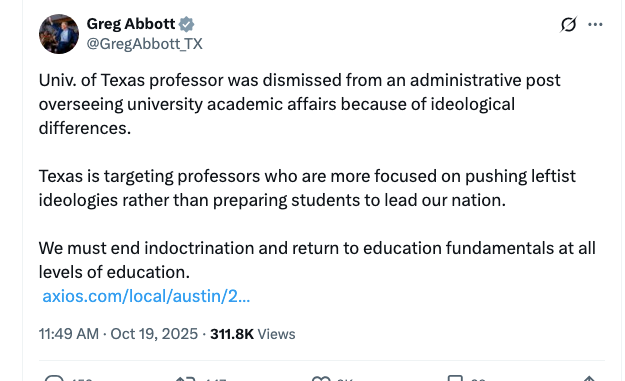October 21, 2025
Exploring the Debate on 'Woke' Education in Red States: A Law Professor's Defense

In the heart of a politically charged debate, a law professor from a state university has penned an open letter addressing concerns from state officials who label his course as part of a "woke" and "DEI" agenda. The professor's course, which was scrutinized for allegedly indoctrinating students, stands as a battleground in the larger discourse on educational content in conservative regions.
The professor addresses the critique head-on, emphasizing that the financial burden of his course on taxpayers is minimal and well justified by market demand. He challenges the notion that his teachings are financially draining or unnecessary, pointing out that if the course were unpopular or deemed worthless, it simply would not exist within the university’s curriculum.
Turning to the accusations of "woke" indoctrination, the professor argues that the terms "woke" and "DEI" (Diversity, Equity, and Inclusion) have been misconstrued. He suggests that these concepts, originally intended to foster inclusion and understanding, have been repurposed as pejorative terms aimed at any disliked educational content. He further illustrates this by noting that even courses aimed at increasing competency, such as those handling LGBTQ+ issues, are unfairly criticized without a deeper understanding of their context and purpose.
The professor robustly defends the educational process, differentiating between indoctrination and education. He cites studies and opinions suggesting that real indoctrination by faculty is highly unlikely and that students’ views are more significantly shaped by their peers and external influences than by their professors.
Furthermore, he argues that the suppression of ideas—whether through direct censorship or by criticizing certain courses—can paradoxically increase the influence of those ideas. Known as the "Streisand Effect," this phenomenon suggests that efforts to suppress information only make it more sought after and powerful.
In conclusion, the professor calls for a more reasoned and informed discussion about the role of education in society. He expresses a willingness to discuss these issues in person with policymakers, hoping to bridge the gap between political rhetoric and educational reality. The letter serves as a plea for a more nuanced approach to governance in education, where the true impact and intent of courses can be understood beyond political scoring points.
This debate highlights the ongoing struggle over educational content in politically diverse settings, reflecting broader national conversations about the role of education in shaping societal values and preparing students for a complex world.